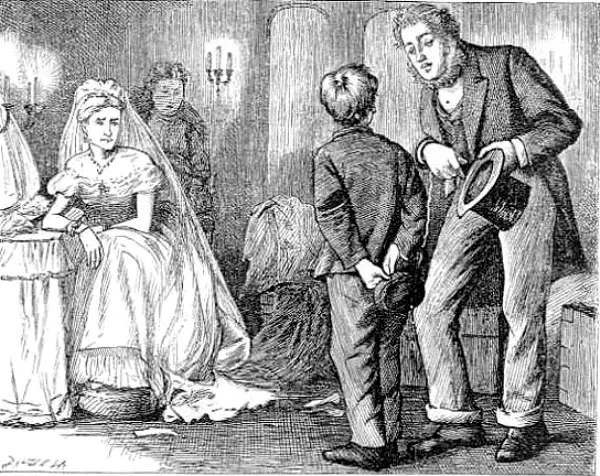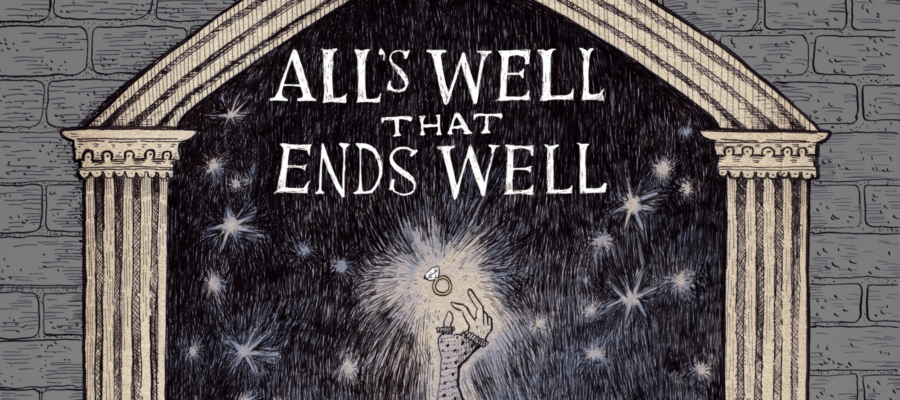By Ahmad Naveed
Great Expectations, a novel by Charles Dickens, was published serially in All the Year Round in 1860–61 and issued in book form in 1861. The classic novel was one of its author’s most significant critical and famous successes. It chronicles the coming of age of the orphan Pip while also addressing such issues as social class and human worth. The novel explicitly explains the prosperity of human values and affections. The moral theme of Great Expectations is quite simple: love, loyalty, and conscience are more important than social advancement, wealth, and class. Ambition and self-improvement take three forms in Great Expectations—moral, social, and educational. The novel explains that social and educational improvement are irrelevant to one’s real worth and that conscience and affection are to be valued above erudition and social standing.
Pip (Philip Pirrip) narrates the tale from an unspecified time in the future. He grows up in the marshlands of Kent, where he lives with his disagreeable sister and her sweet-natured husband, the blacksmith Joe Gargery. While visiting his family members’ graves in the churchyard, the young Pip encounters Abel Magwitch, an escaped convict. Pip brings him food and a file, but the fugitive and Compeyson—his former criminal partner and a supposed gentleman who is now his enemy—are soon caught. Later, Pip is requested to pay visits to Miss Havisham, a woman driven half-mad years earlier by her lover’s departure on their wedding day. Living with Miss Havisham at Satis House is her adopted daughter, Estella, whom she teaches to torment men with her beauty. Pip, at first cautious, later falls in love with Estella, who does not return his affection. He grows increasingly ashamed of his humble background and hopes to become a gentleman, partly to win over Estella. However, he is disappointed when he instead becomes Joe’s apprentice.
Several years later, a lawyer named Mr Jaggers appears and informs Pip that an anonymous benefactor has made it possible for him to go to London for an education; Pip believes that the money is from Miss Havisham, who does not dissuade him of the notion. Once in London, Pip is taught to be a gentleman by Matthew Pocket and his son Herbert, the latter of whom Pip met years earlier at Satis House. Also receiving instruction is the slow-witted and unlikable Bentley Drummle.
The increasingly snobbish Pip is later horrified to discover that his mysterious benefactor is Magwitch. Not only is Magwitch in danger of being arrested, but Pip’s social standing is also threatened. Pip reveals the situation to Herbert, and it is decided that Magwitch and Pip should leave England. Before departing, Pip visits Satis House, where he confronts Miss Havisham for letting him believe she was his patron. He also professes his love to Estella, who rejects him. Knowing that Drummle is pursuing her, Pip warns her about him, but she announces that she plans to marry him. Pip subsequently makes several startling discoveries, notably that Magwitch is Estella’s father and that Compeyson was Miss Havisham’s lover. He also grows close to Magwitch, whom he comes to respect.
As Pip and Magwitch attempt to leave London via a boat, the police and Compeyson arrive. The two convicts fight in the Thames, and only Magwitch surfaces; Compeyson’s body is later recovered. The injured Magwitch is arrested, convicted, and dies awaiting execution. A despondent Pip is arrested because of his debts, but his failing health prevents him from being jailed. Joe subsequently arrives and nurses Pip back to health. Joe also informs him that Miss Havisham has died. After Joe leaves, Pip discovers that his brother-in-law has paid his bills. Pip later accepts a job offer at the Cairo branch of Herbert’s firm, and he enjoys a simple but content life. After more than ten years away, he returns to England and visits the place where Satis House once stood. There he encounters Estella, who is now a widow. Pip takes her hand as they leave, believing they will not part again.
Great Expectations works on a number of levels: as a critique of Victorian society and as an exploration of memory and writing. However, it is, more importantly, a search for true identity. During the novel, Pip realizes that his “great expectations”—social standing and wealth—are less important than loyalty and compassion. Critics also noted great Expectations for its blend of humor, mystery, and tragedy. In the original ending of the work, Pip and Estella were not reunited, but Dickens was persuaded to write a happier conclusion.















